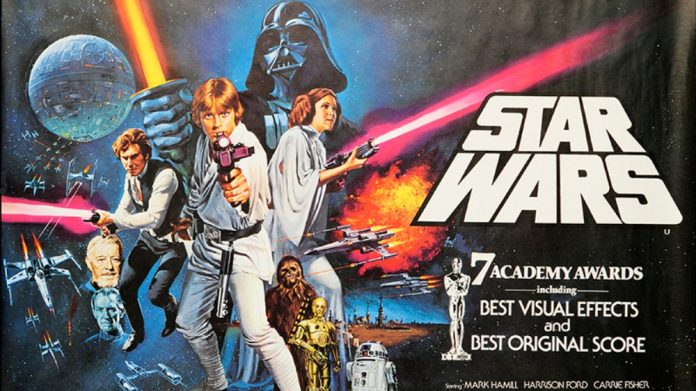I was six and a half years old when the first Star Wars movie was released. People call it A New Hope now, but for those of us of a certain age, the people who were there, it’s just Star Wars.
I can’t overstate how incredible it was. It was astonishing. Mind-blowing. Life changing. A few months later — a month before I turned seven — Close Encounters of the Third Kind came out, and after Star Wars, I couldn’t wait to see it. I bugged my parents until they took me to the theater, and it was… sooooo boring. I mean, yeah, as I’ve gotten older, my appreciation for the movie has turned into a genuine love, but as an almost seven-year-old? On the heels of Star Wars? Yikes.
Star Wars was everything. It was absolutely everything. We were obsessed with it. Our beds were covered in Star Wars sheets. Our toys were Luke and Han and Obi-Wan action figures. We had lightsabers. We had miniature X-Wing fighters. We watched the VHS tapes until they were worn out.
Three years later, The Empire Strikes Back blew our minds again. And when I tell you that people were talking about Revenge of the Jedi — and yes, until right before the movie was released, it was called Revenge, not Return, an alteration that came about only after George Lucas realized that Jedis are not capable of revenge — for more than a year before its release, I’m not exaggerating. And this was a couple of decades before social media was a thing.
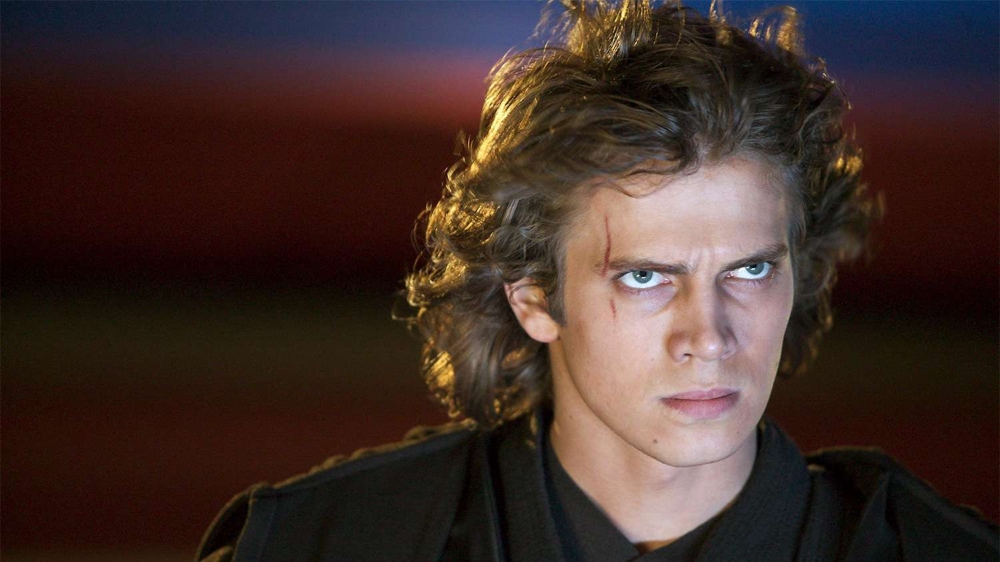
In 1997, on the 20th anniversary of the first movie’s release, Lucas remastered the three films and added new material, then released them on the biggest screens possible. Back when the Ziegfeld was still in business in New York City, in that gorgeous, cavernous amphitheater with the biggest screen in the country, the place was packed with 1500 people that first showing, and we all went bananas. The crowds thinned slightly over the next month or so as the other two movies were rereleased, but the theaters were still jammed, and it was clear that Star Wars was still very much an event. The atmosphere was incredible — a large group of people gathering together to celebrate something we loved.
The key word to pay attention to in the previous paragraph, of course, is “event.” Star Wars movies came along so rarely that they were something to get excited about.
My love for the franchise lessened with the release of the second trilogy, and even more with the third. They were still “events,” technically, but the bloom was off the rose. Lucas’ insistence on writing and directing Episodes I, II, and III himself was a mistake, as was the way he told the story of Anakin Skywalker’s downfall. Others liked the last trilogy a lot more than I did. I thought it was a bunch of nonsensical fan service that wasted enormous opportunities to move the universe forward and into an exciting new direction. Solo, too, was a disappointment. Rogue One was okay, I guess. When it comes to TV, I like The Bad Batch a lot. The Mandalorian is mostly pretty good. The Book of Boba Fett was not. Andor is unquestionably fabulous.
The point of all this is not just to establish my bonafides as a Star Wars fan, but to make it clear that Star Wars is no longer the “event” that it used to be. Star Wars used to be the franchise, and now it’s just a franchise. No better or more special than the Marvel Cinematic Universe, James Bond, or Mission: Impossible. If anything, it’s already been firmly surpassed by at least one of those.
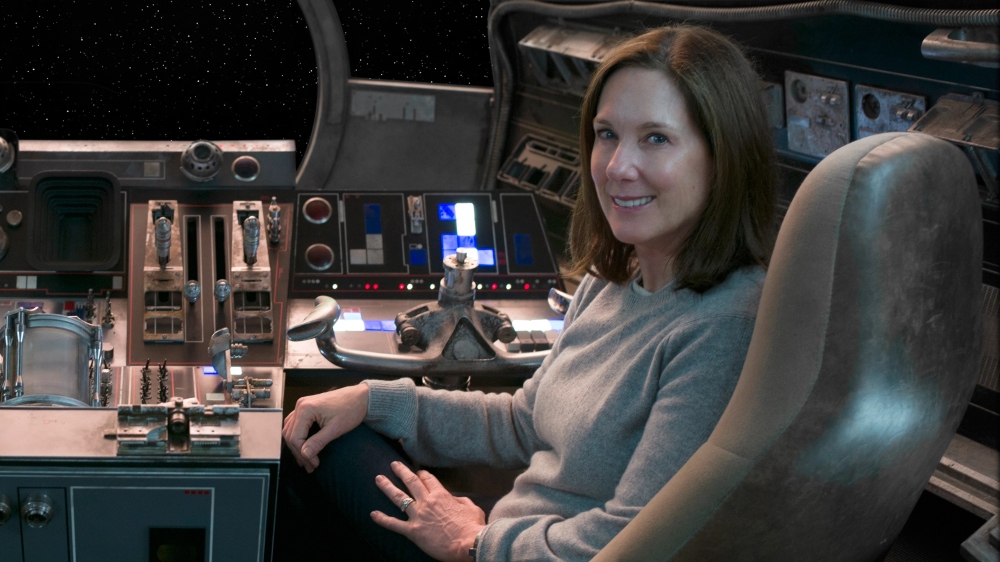
A new Ethan Hunt film? Now that’s an event these days. A new Star Wars project? That’s just another Disney+ show or an announcement about a movie that may or may not happen. When something does come out — the new season of The Mandalorian, for instance — we sit up and take notice, sure. But do we drop everything for it, like we perhaps used to? I’ll leave that to you to answer.
One more illustration of this is what Lucasfilm president Kathleen Kennedy said over the weekend in what was something of an offhand comment, but which revealed a lot to me. She was asked about the trilogy that Rian Johnson was supposed to make, which was announced six years ago when The Last Jedi came out and was a pretty big hit ($1.3 billion worldwide, including $620 million domestic).
She basically said that it was no longer in development because Johnson doesn’t have time for it. If and when he decides to focus on the project, she said that Lucasfilm will be excited to work with him.
But, excuse me… he doesn’t have time? Seriously? I personally don’t have any interest in making a Star Wars movie, much less three of them, but if I did, I can’t imagine what else would be more important to me. Hell, last month I had a conversation with The Bad Batch executive producers Brad Rau and Jennifer Corbett in which I asked them how often they stop and geek out about what they’re doing with their lives, making Star Wars stories for a living. “Every day,” Corbett said with a laugh. “Every single day.”
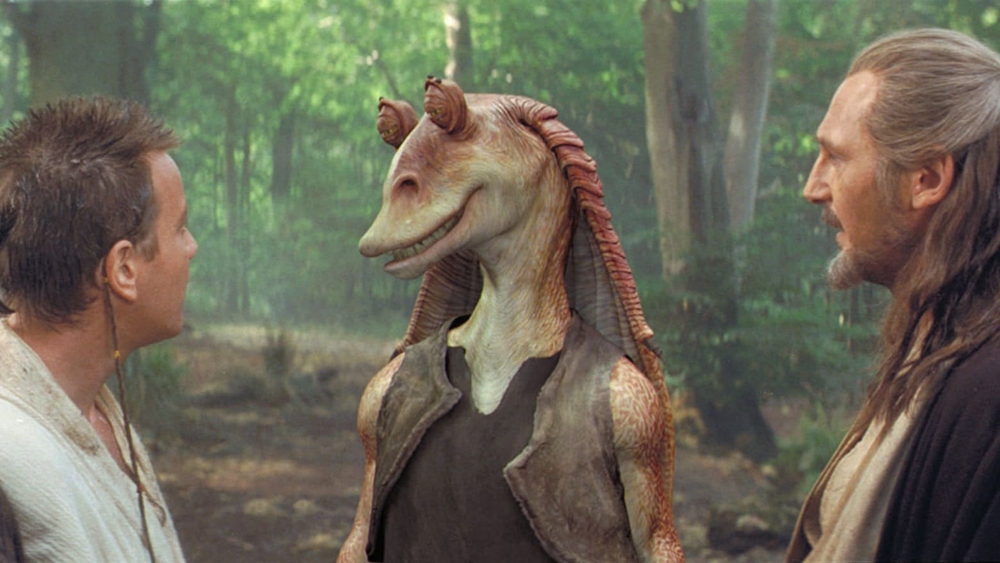
All this is to say that the years have not been kind to the place we used to visit a long time ago in a galaxy far, far away. That place is just like any other, really. Ask Liam Neeson, Qui-Gon Jinn himself, who said that all the spinoffs are diluting the “mystery” and “magic” of the franchise.
But it doesn’t have to be this way. The Star Wars universe can set itself apart again. It can be appointment viewing. It can be an “event” once again.
Last year in this space, despite my esteemed editor’s disagreement, I said that Star Wars should focus on television for the time being, In retrospect, I think I was wrong about that. I think the absence of any big screen presence has hurt the franchise and helped to lessen its impact. Now, Star Wars is just another TV show, even if some of the individual shows are better than most of the other stuff that’s available on the small screen.
That’s why I was so pleased to see Kennedy’s announcement over the weekend about new film projects in development. Disney CEO Bob Iger said last month that the failure of Solo forced the company to be much more careful about what films it’s developing within the franchise, which was welcome news because it meant that when announcements of new projects were made, it would mean they were much better considered.
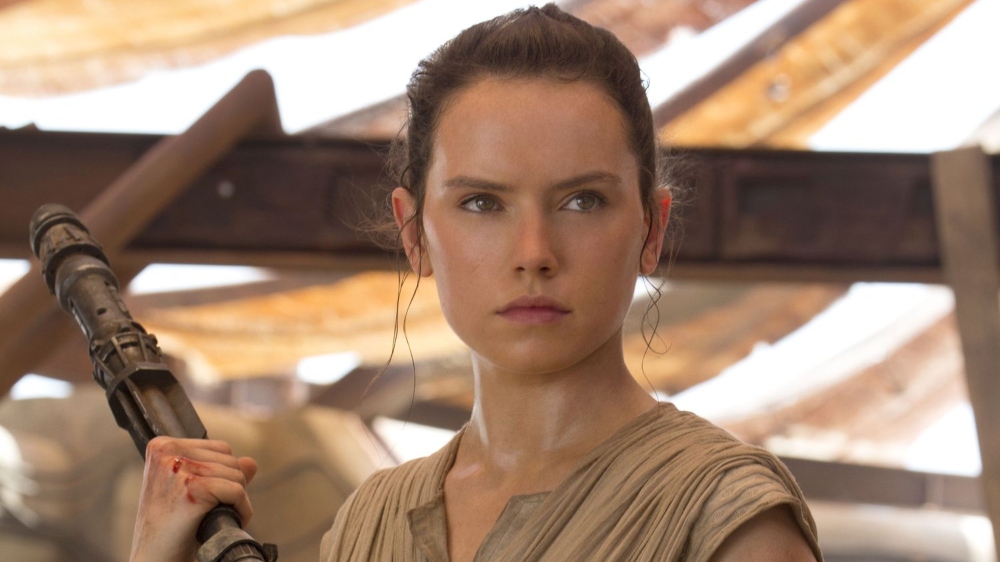
So the fact that a few such entries were announced over the weekend was enough for me to sit up and take notice. New movies from Star Wars guru Dave Filoni, Indiana Jones and the Dial of Destiny director James Mangold — a filmmaker I used to dismiss but who has now, over his last couple of movies, become someone whose work I now eagerly anticipate — and a new movie from Sharmeen Obaid-Chinoy that will bring back Daisy Ridley as Rey, which was the biggest surprise of the day for me. This is the project that had Damon Lindelof involved before he was replaced by Peaky Blinders creator Steven Knight. The idea of another movie starring Rey is not something I ever thought would interest me, and yet, judging from my level of curiosity about it, that seems to be the case here.
There’s also a Taika Waititi project in development and a movie from producer Kevin Feige that Kennedy suspiciously didn’t mention onstage, but which is reportedly still very much in development. There’s apparently a side story there about why she deliberately ignored that project involving dueling egos and the fact that Feige’s MCU continues to thrive while Kennedy’s Lucasfilm has sputtered somewhat, but that’s a column for another time.
Overall, that’s five new movies on the horizon, though which one will come out first is a genuine question that does not have an immediate answer. What we do know is that the earliest that a Star Wars movie will hit theaters will be on Dec. 19, 2025. That’s more than two and a half years away, and six years almost to the day since the last movie in the franchise hit theaters, Episode IX — The Rise of Skywalker.
Six years is not a huge amount of time, especially when it comes to Star Wars, and it’s better than the over-saturation of a new movie every year, which we saw from 2015 to 2019. It’s certainly one way to make these movies actual events again… but the time has come to deliver the goods rather than empty announcements that rarely come to fruition.
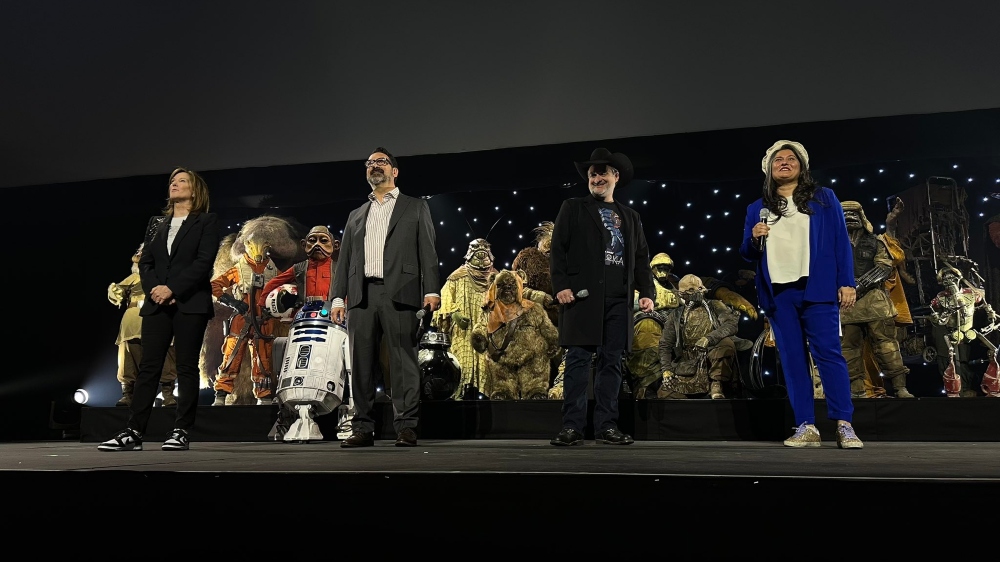
There is no guarantee, of course, that any of these projects will make that date — and if there is any chance of that happening, at least one will have to hit the ground running pretty darn soon — but let’s say none do, and the next Star Wars movie gets pushed back another year.
All that would do is, even accidentally, create more desire for it, thus achieving the “event” status Lucasfilm has so badly missed after all these years. Yes, there’s an argument to be made that too much time away will make people care even less, but I have two responses to that. The first is that the TV projects will keep audiences’ enthusiasm piqued, and the second is that it’s freakin’ Star Wars! People will show up! They almost always do (sorry, Solo)!
So say what you will about Kennedy and how she’s running the operation, but Lucasfilm’s strategy of taking its time and making sure that the next Star Wars movie is a winner while acknowledging that they have to do something, and soon, might just be a step in the right direction.
May the Force be with Kennedy and Lucasfilm.
 Neil Turitz is a journalist, essayist, author, and filmmaker who has worked in and written about Hollywood for more than 25 years, though he has never lived there. These days, he splits his time between New York City and the Berkshires. He’s not on Twitter, but you can find him on Instagram @6wordreviews.
Neil Turitz is a journalist, essayist, author, and filmmaker who has worked in and written about Hollywood for more than 25 years, though he has never lived there. These days, he splits his time between New York City and the Berkshires. He’s not on Twitter, but you can find him on Instagram @6wordreviews.
You can read a new installation of The Accidental Turitz every Wednesday, and all previous columns can be found here.


